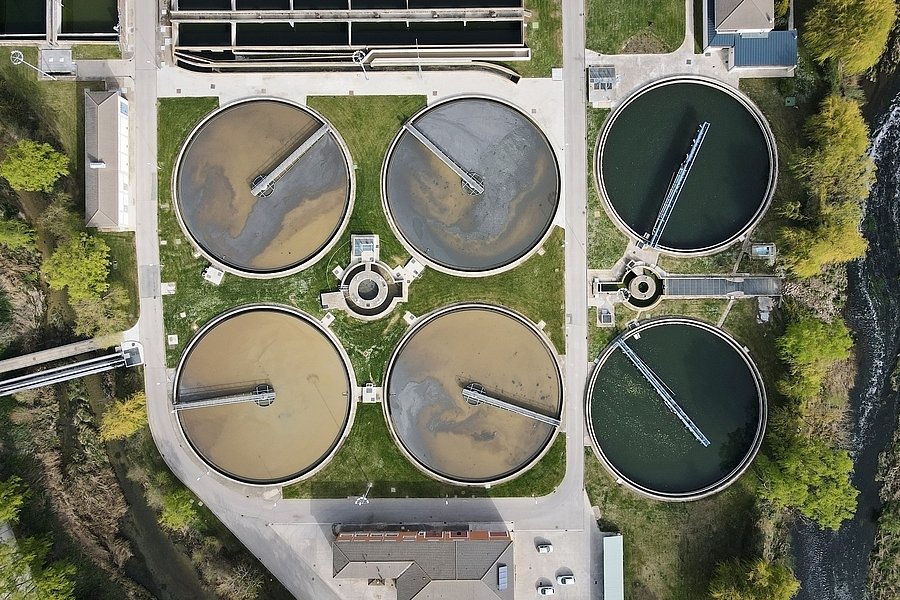On the road to climate neutrality
Wastewater treatment plants as service providers: "FlexAqua" project aims to increase energy flexibility with AI

Wastewater treatment plants and their potential for the energy transition are the focus of the "FlexAqua" research project that has now been launched at the University of Wuppertal. // Photo Colourbox
Municipal wastewater treatment plants require a lot of energy to treat wastewater - wastewater treatment plants are often among the largest single municipal consumers. However, they are also places of sustainable electricity and heat generation: The sewage gas produced in the plant's digesters, for example, is considered an extremely productive and renewable energy source with great potential to make a decisive contribution to the energy transition. In addition, innovative operating methods make it possible to shift the timing of energy procurement and operators are increasingly turning to wastewater treatment plants as sites for wind power and photovoltaic systems. All of this potential makes it possible to operate the wastewater treatment plant as an energy-flexible service for the energy system. In other words, the plant would become the centrepiece of the development and expansion of a flexible urban energy supply system as part of the energy transition. By selectively shifting the timing of energy procurement and consumption, for example, more electricity can be drawn when there is a lot of energy available from wind and sun. At times when there is little wind and sun, less energy can be drawn or even surplus energy can be fed into the system.
Too much effort
However: "In order to be able to utilise this potential, the operators of the system must be able to better assess consumption and generation in order to be able to adjust them to the forecast situation of the energy system and the electricity grid. Currently, such flexibility can only be predicted with considerable time and engineering effort," explains Prof Markus Zdrallek, Head of the Institute of Power Systems Engineering at the University of Wuppertal and project coordinator. Together with Stadtentwässerungsbetriebe Köln AöR, the IT service provider EnFlex.IT and the University of Duisburg-Essen, the team led by the scientist is therefore now investigating solutions that can be used to optimise energy usage planning in the companies. The participants are relying on the support of artificial intelligence: using machine learning methods, the aim is to generate forecasts for relevant influencing variables that can be used to identify, analyse and make the best possible use of the flexibility potential of wastewater plants. These include, for example, forecasts of when and how much water to be treated will arrive at the treatment plant, depending on rainfall, household consumption and industrial behaviour.
Practical tests and testing transferability
Through optimised operation, the wastewater companies not only have the opportunity to reduce CO2 emissions and their own energy costs, but also to generate additional income from the marketing of energy flexibility. "In FlexAqua, we will initially simulate and test various solutions with our partners. In a later step, we will go into practice in order to apply the solutions we have found under real conditions," says Zdrallek, explaining the approach. The project aims to develop prototype solutions that can be further developed for productive use in regular operation. The findings from the practical test are to be analysed in particular with regard to their transferability to other water management and industrial companies.
The "FlexAqua" project will be funded over the next three years by the Ministry for the Environment, Nature Conservation and Transport of the State of North Rhine-Westphalia and the European Union from the European Regional Development Fund (ERDF) with a total of around 1.1 million euros. The University of Wuppertal's share amounts to around 270,000 euros.

